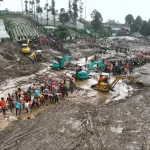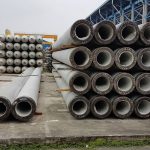The heavy equipment industry is the backbone of national development. From mining and infrastructure projects to plantations and ports, heavy equipment plays a crucial role in productivity and efficiency. However, despite its power, heavy equipment also carries significant risks: accidents, fires, sinking, mechanical failure, and even theft.
Losses from such incidents can reach billions of rupiah. Unfortunately, many companies still believe that simply having an insurance policy covers all risks. However, having an insurance policy and having effective protection are two different things.
This is where the role of a professional insurance broker becomes crucial — as an advisor, planner, and companion to clients in managing risks and settling claims fairly.
1. Why Heavy Equipment Insurance is Complex
Heavy equipment has unique characteristics compared to other industrial assets.
High value, use in extreme terrain, and frequent location changes (project to project mobilization).
The risks vary for each type of work — from open pit mining to road construction to ports.
Various types of insurance are required: Contractor’s Plant and Machinery (CPM), Machinery Breakdown, Public Liability, and Transit/Mobilization Insurance.
Without a thorough understanding of heavy equipment operation, companies can easily choose the wrong policy type or overlook important clauses. As a result, many claims are rejected because the policy wording doesn’t reflect the actual risk.
2. Main Functions of Insurance Brokers
Insurance brokers are not extensions of insurance companies, but rather representatives of the interests of the insured.
Their duties cover the entire risk management cycle — from identification to claim settlement.
Following are the important roles of insurance brokers in the heavy equipment industry:
- Analisis Risiko (Risk Assessment)
Brokers assess potential hazards based on location, type of work, frequency of operation, and value of the tool.
For example, the risks involved in mining equipment are very different from those involved in road construction.
- Insurance Program Design
Brokers design the best policy combination — CPM, Fire, Theft, Liability, and Business Interruption — with wording tailored to field conditions.
- Premium and Clause Negotiation
Brokers have extensive access to a wide range of insurance companies and can negotiate competitive premiums and maximum protection.
- Claim Assistance
When an incident occurs, the broker acts as an advisor and liaison with the loss adjuster, ensuring claims are processed quickly, data is complete, and payments are made according to the contract.
3. Risks of Handling Insurance Directly
Many companies try to purchase policies directly from insurers, claiming it’s faster or more cost-effective. However, in practice, this often creates problems:
- The clause does not correspond to the operating conditions of the equipment.
- Excess or lack of coverage (over/under insured).
- Not understanding the claims process and reporting obligations.
- There is no party to accompany during claim negotiations.
Without a broker, the insured is left to face the insurance company, which has a stronger position and technical knowledge. As a result, claims are prone to rejection or partial payment.
4. Case Study: The Importance of Broker Assistance
One real-life example: a contractor company in Kalimantan experienced an accident where heavy equipment sank at sea while being transported to a project. The estimated loss reached Rp 17 billion.
Thanks to the assistance of L&G Insurance Broker, the claim report was professionally prepared, photos and chronology were verified with the surveyor, and negotiations were intensive. In less than three months, the claim was paid in full by the insurance company.
Without a broker, the company would likely face lengthy debates over the causes and limits of liability, and could even end up with no payment at all.
5. Brokers as Risk Consultants
The broker’s role doesn’t end after the policy is issued. Brokers also serve as long-term risk consultants, helping clients manage the safety and productivity of their heavy equipment.
Some of the support provided includes:
- Audit and inspection of equipment in the field.
- Evaluate risks to determine reasonable limits of coverage.
- Training on understanding claims and reporting obligations for operational staff.
- Police monitoring and time reminders are in effect so that there are no gaps in protection.
Thus, brokers act as strategic partners who protect companies from potential major losses and ensure the continuity of safe project operations.
6. L&G Insurance Broker: Heavy Equipment Specialist in Indonesia
As one of the leading independent insurance brokers in Indonesia, L&G Insurance Broker has over 30 years of experience in handling heavy equipment, mining, and construction risks.
Currently, L&G insures more than 2,000 units of heavy equipment from various leading brands, including SANY, XCMG, LiuGong, SDLG, Zoomlion, Shantui, Lonking, Weichai, and Foton.
L&G is known for:
- In-depth technical expertise on heavy equipment field conditions.
- High negotiation skills with national and international insurance companies.
- A successful track record of resolving hundreds of major claims — from fires, total damages, to heavy equipment losses.
In addition to handling CPM insurance, L&G also provides Liability, Marine Cargo, Surety Bond, and Property and Engineering Insurance protection to support all client business needs.
7. Broker Work Process in Claim Settlement
L&G applies a structured approach to handling heavy equipment claims:
- Preliminary Investigation and Complete Documentation.
- The team helps clients gather chronology, evidence, and technical reports.
- Coordination with Loss Adjuster.
- Brokers ensure that the investigation results are objective and in accordance with the facts on the ground.
- Negotiation of Loss Value.
- L&G plays an active role in technical discussions with insurers to ensure claim values are calculated fairly.
- Claim Payment Monitoring.
- Once approved, the broker ensures that claim payments are received on time.
This approach has proven effective and is the reason why many large heavy equipment companies entrust their insurance programs to L&G.
8. Long-Term Benefits of Working with a Broker
For heavy equipment companies and contractors, the benefits of using an authorized insurance broker include:
- Time and cost efficiency. All administration, negotiations, and claims are handled by experts.
- Legal protection and guarantee certainty. Broker registered and supervised by the Financial Services Authority (OJK).
- Premium optimization. Brokers help align insurance limits with actual needs, not just the lowest price.
- Professional claims management. No delayed payments, no protracted arguments.
With broker support, companies can focus on their core business without worrying about financial risks due to accidents or heavy equipment damage.
Conclusion
In high-risk industries such as mining and construction, insurance brokers are strategic partners that protect company assets and stability.
They not only help purchase policies, but also manage risks, develop protection strategies, and ensure claims are paid in full and on time.
As an experienced insurance broker in the heavy equipment sector, L&G Insurance Broker has proven its reliability in assisting various large companies in Indonesia. With its extensive experience, extensive network, and commitment to professional service, L&G is ready to be your trusted partner in protecting your heavy equipment and ensuring project continuity.
—
DON’T WASTE YOUR TIME AND SECURE YOUR FINANCIAL AND BUSINESS WITH THE RIGHT INSURANCE.
HOTLINE L&G 24 JAM: 0811-8507-773(CALL – WHATSAPP – SMS)
Website: lngrisk.co.id
Email: halo@lngrisk.co.id
—














